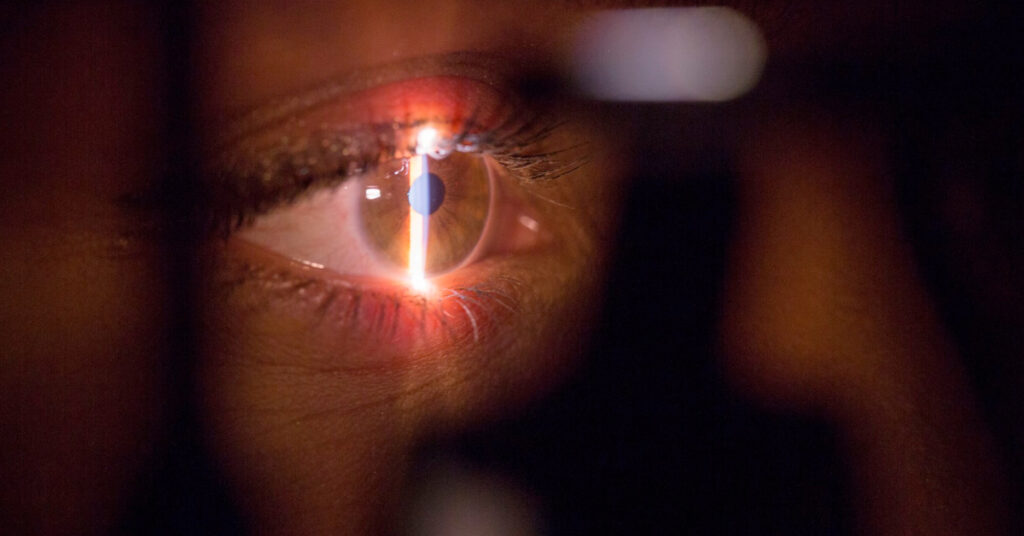The retina is a key part in how a person is able to see. It converts light into nerve signals and then sends them to the brain; this is how we are able to recognize images. See the diagram for reference on the retina’s location in the eyeball.

Source: Mayo Clinic
The retina requires a constant blood supply to ensure that the cells are getting enough oxygen and nutrients. Arteries and veins carry blood throughout the body, including to the eyes. However, when there is a blockage in an artery from the retina, this is called a retinal vein occlusion (RVO).
Causes
Retinal vein occlusion is most often caused by the hardening of the arteries (atherosclerosis) and the formation of a blood clot. Patients with diabetes, and other conditions that affect the blood vessels, are more apt to get retinal vein occlusion.
Other risk factors for retinal vein occlusion include:
- High blood pressure
- High cholesterol
- Being overweight
- Smoking
- Eye Trauma
- Glaucoma
The risk of RVO increases with age and most often affects people over the age of 60.
Symptoms
In cases where there is a blockage in small blood vessels, patients may experience no symptoms. Typically though, retinal vein occlusion will cause blurriness or loss of vision in one eye. The changes in eyesight can be either temporary or permanent, so it is important to see your ophthalmologist at the first sign of these symptoms.
Other symptoms include:
- Floaters
- Pain or pressure in the affected eye
Prevention
One of the best ways to prevent retinal vein occlusion is to treat the risk factors. RVO is typically a sign of a blood vessel disease, so it’s important to protect the blood vessels and keep the heart healthy to decrease your risk.
Some preventative lifestyle measures are:
- Eating a low-saturated diet
- Not smoking
- Getting regular exercise
- Controlling diabetes by keeping blood sugar at a healthy level
It is important to monitor your eye health in order to catch any possible symptoms of retinal vein occlusion early. Routine check-ups with your ophthalmologist will also help to discover if you have high blood pressure or diabetes so preventative treatment can be started right away. Reach out today if you would like to schedule an appointment with Dr. Pandya. Dr. Pandya services the Dallas Fort Worth community with offices in both Plano and Waxahachie, Texas.

